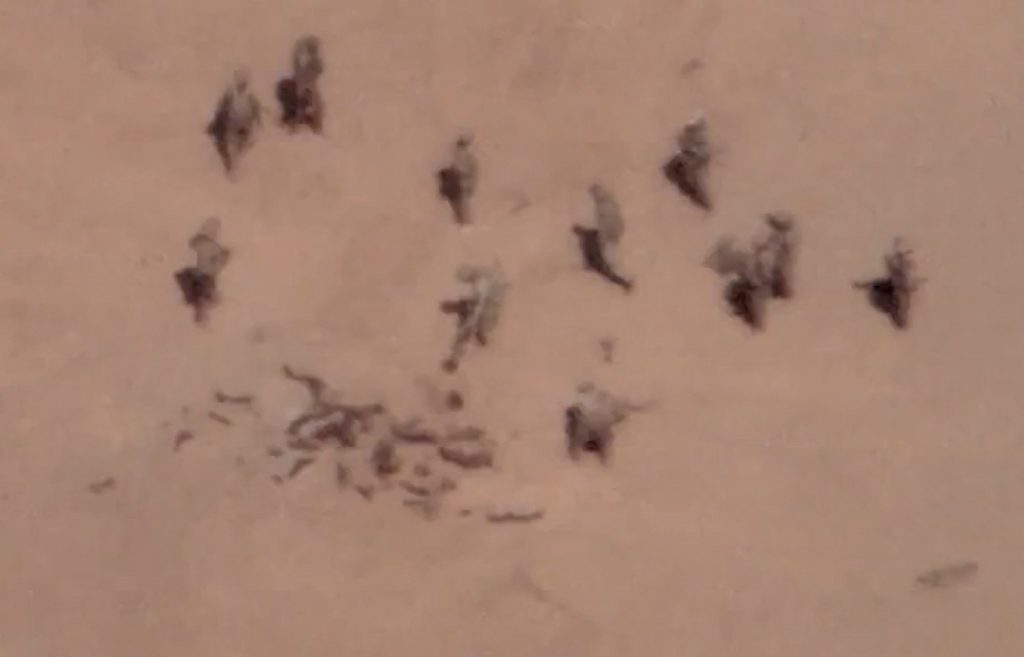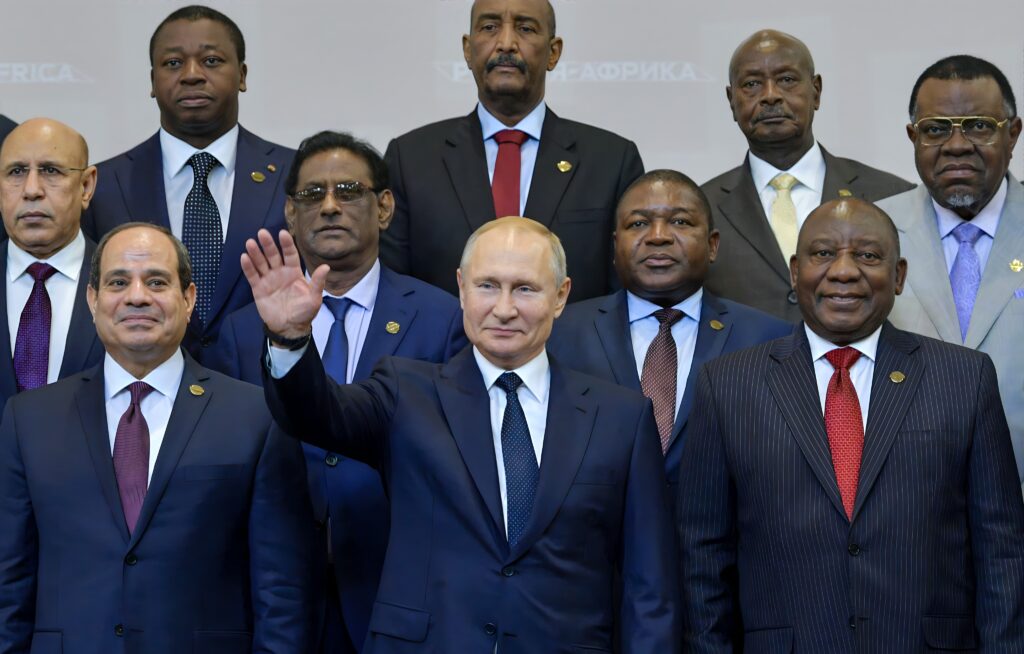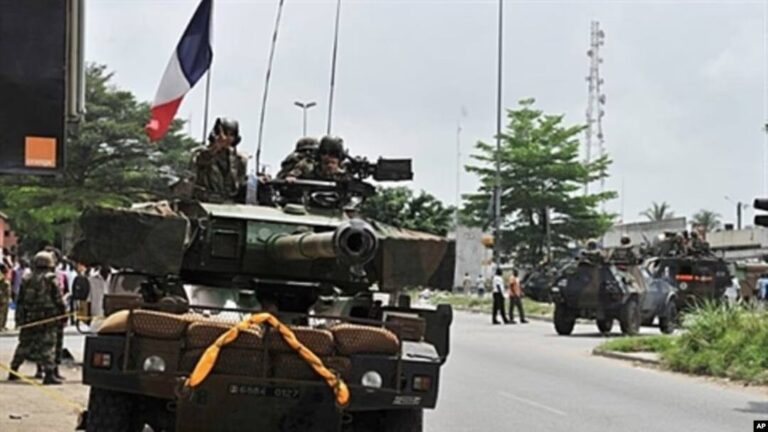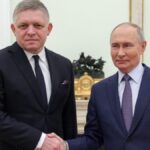The push to withdraw French troops from West Africa has gained momentum due to a confluence of historical, political, and social factors, as well as shifting regional and global dynamics.
The withdrawal of French troops from West Africa is a manifestation of deeper historical grievances, contemporary frustrations, and the changing geopolitical landscape. It reflects a region increasingly eager to assert its sovereignty, manage its own security, and diversify its international partnerships. This trend is not just a rejection of France but a broader shift toward redefining the relationship between Africa and external powers.
Ivory Coast has announced that French troops will begin withdrawing from the country in January 2025, ending a decades-long military presence.
This decision aligns with a broader trend in West Africa, where nations such as Mali, Burkina Faso, Niger, Chad, and Senegal have also requested French military departures.
Several factors contribute to this shift:
- Perceived Neocolonialism: There’s a growing sentiment that France’s military presence represents a continuation of colonial-era dominance, leading to increased anti-French sentiment.
- Security Concerns: French-led anti-terrorism efforts in the Sahel have been ineffective, failing to curb extremist activities.
- Geopolitical Realignment: Some West African countries are exploring new alliances, notably with Russia and China, seeking alternative security and economic partnerships.
In Ivory Coast’s case, President Alassane Ouattara cited the modernization of the Ivorian army as a reason for the withdrawal, indicating a desire for greater self-reliance in defense matters.
This move reflects a significant reconfiguration of military alliances and influences in West Africa, as countries reassess their security strategies and international partnerships.
Several foreign states and entities are likely interested in the withdrawal of French troops from Ivory Coast, as it aligns with broader geopolitical shifts and strategic interests in West Africa. Here are some key players:
1. Russia
- Russia has been expanding its influence in Africa through security partnerships, economic investments, and military contracts, often as an alternative to Western nations.
- Russian private military groups like Wagner have already gained a foothold in countries such as Mali and the Central African Republic. The departure of French troops from Ivory Coast could create opportunities for Russia to extend its influence further.

2. China

More on this story: Kremlin to elbow Paris out of Africa, raising risks for France

- China’s interest in Africa is primarily economic, with substantial investments in infrastructure, natural resources, and trade.
- The reduction of French influence could open the door for China to strengthen its economic ties and assert greater geopolitical influence in the region.
3. Regional Powers (e.g., Nigeria, Ghana)
- Countries like Nigeria and Ghana, which are key players in West African regional politics, may view the shift as an opportunity to enhance regional security initiatives without heavy Western influence.
- ECOWAS (Economic Community of West African States) might push for more localized solutions to regional security issues.
4. Middle Eastern States
- Countries such as Turkey and the UAE have shown growing interest in Africa for economic and strategic reasons.
- These nations could see France’s reduced military presence as a chance to increase their diplomatic and economic footprint.
6. Anti-Western Bloc (e.g., Iran)
- Countries opposed to Western dominance globally, such as Iran, may view France’s military withdrawal as a symbolic weakening of Western influence and could leverage the situation to build alliances in the region.
7. Non-State Actors
- Armed groups and insurgents operating in the Sahel and West Africa may perceive the withdrawal as a weakening of international counterterrorism efforts, potentially emboldening their activities.
The departure of French troops reflects a broader recalibration of power dynamics in Africa, with multiple states vying for influence as traditional Western roles diminish.
The withdrawal of French troops from Ivory Coast and other West African countries could lead to significant geopolitical, security, and economic consequences in the medium term:
1. Regional Security Dynamics
- Increased Vulnerability to Extremism:
The withdrawal may create a security vacuum, emboldening terrorist and insurgent groups such as al-Qaeda and ISIS-affiliated factions operating in the Sahel and West Africa. Ivory Coast, though relatively stable, could face spillover effects from neighboring conflict zones. - Shift Toward Regional Security Initiatives:
Regional organizations like ECOWAS may intensify efforts to build collective security frameworks. However, resource constraints and coordination challenges could limit effectiveness. - Rise of Alternative Security Partners:
Countries like Russia (via Wagner Group) or Turkey could step in to fill the void, potentially altering the balance of power and introducing new dynamics in local conflicts.
2. Geopolitical Realignment
- Decline of French Influence:
France’s withdrawal could signal the waning of its traditional role as a dominant player in Francophone Africa. This could weaken its diplomatic and economic leverage in the region. - Emergence of New Players:
China, Russia, Turkey, and Middle Eastern countries may expand their presence, offering military, economic, or political support. This could shift alliances and create a multipolar dynamic in West Africa.
3. Economic Implications
- Impact on Trade and Investment:
Political instability stemming from reduced security could deter foreign investment, disrupt trade, and harm regional economies. - Increased Dependency on Non-Western Partners:
Nations in the region might turn to China or Russia for infrastructure funding and trade partnerships, further diminishing Western economic influence.
4. Internal Political Consequences
- Rise in Anti-Western Sentiment:
Governments could exploit nationalist rhetoric to consolidate power, blaming former colonial powers like France for economic or security challenges. - Potential Political Instability:
Weak governments may struggle to maintain control without external support, potentially leading to coups or authoritarian shifts, as seen in Mali and Burkina Faso.
5. NATO and Western Strategy in Africa
- Fragmentation of Counterterrorism Efforts:
The lack of French leadership could hinder coordinated counterterrorism campaigns, reducing overall effectiveness in combating extremist groups. - Increased U.S. Involvement:
The U.S. might increase its presence to compensate for France’s absence, though this could be politically sensitive.
6. Social and Humanitarian Impacts
- Worsening Humanitarian Crises:
Reduced security and potential instability could exacerbate displacement, poverty, and food insecurity in affected areas. - Heightened Refugee Flows:
Neighboring countries, including Ivory Coast, may face an influx of refugees from destabilized regions, straining local resources.
Conclusion
In the medium term, the withdrawal of French troops is likely to destabilize the region, alter power dynamics, and open opportunities for non-Western actors. The long-term impact will depend on the ability of regional powers, international organizations, and emerging global players to fill the void left by France.
The motives of Ivorian President Alassane Ouattara for requesting the withdrawal of French troops are likely shaped by a mix of domestic, regional, and international factors. Here’s an analysis of potential motivations:
1. Assertion of National Sovereignty
- Reducing Dependency on France:
By asking French troops to leave, Ouattara signals Ivory Coast’s desire to reduce its reliance on its former colonial power and assert greater control over its security and defense policies. - Responding to Anti-French Sentiment:
Growing anti-French sentiment in West Africa, fueled by perceptions of neocolonialism and dissatisfaction with French military operations, may have pressured Ouattara to distance himself from France to maintain domestic legitimacy.
2. Modernization of the Ivorian Military
- Building Local Capacity:
Ouattara has emphasized the modernization of the Ivorian military. Reducing foreign military presence aligns with efforts to promote a more self-reliant national defense force. - Boosting National Pride:
Strengthening the country’s military without external assistance can foster national pride and reinforce the government’s image as capable and independent.
3. Regional Trends and Peer Influence
- Following Regional Shifts:
Several West African nations, including Mali, Burkina Faso, and Niger, have recently expelled French troops, reflecting a regional trend toward reducing Western military influence. Ouattara’s decision aligns with this broader movement. - Balancing Regional Leadership:
Ivory Coast, as a leading economy in West Africa, may seek to position itself as a regional leader by adopting policies that resonate with the broader anti-colonial sentiment in the region.
4. Domestic Political Considerations
- Appealing to Nationalist Sentiments:
Expelling French troops may bolster Ouattara’s standing among nationalist factions within the country, potentially strengthening his political base. - Deflecting Criticism:In the face of domestic challenges, such as economic issues or social unrest, removing French troops could serve as a symbolic gesture to unite the population against a common external target.
5. Geopolitical Recalibration
- Diversifying Alliances:
Ouattara may be seeking to diversify Ivory Coast’s international partnerships by reducing reliance on France and opening doors to new allies, such as Russia, China, or Turkey. - Reducing Perceptions of French Control:
Maintaining French troops can be seen as a symbol of continued French influence. Their removal allows Ivory Coast to project a more independent foreign policy stance.
6. Security and Strategic Reasons
- Perceived Ineffectiveness of French Forces:
Critics of France’s military presence argue that its operations in the Sahel and West Africa have not effectively curbed extremist threats. Ouattara may share this view and believe local or regional forces can be more effective. - Avoiding Association with Western Conflicts:
As geopolitical tensions rise, particularly with Russia and China increasing their influence in Africa, Ivory Coast may seek to avoid being seen as overly aligned with Western powers.
Conclusion
President Ouattara’s decision is likely a strategic blend of responding to domestic pressures, aligning with regional trends, and recalibrating Ivory Coast’s foreign policy. By requesting the withdrawal of French troops, he seeks to project independence, strengthen national institutions, and adapt to shifting geopolitical dynamics in West Africa.
The withdrawal of French troops from Ivory Coast could significantly impact the country’s political landscape in various ways. Here’s an analysis of the potential effects:
1. Strengthening Nationalist Sentiment
- Boosting Support for Ouattara:
By expelling French troops, President Alassane Ouattara positions himself as a defender of national sovereignty. This could bolster his support among nationalist factions and younger populations who favor reduced ties with France. - Increased Popular Legitimacy:
The decision might resonate with broader anti-colonial sentiments, enhancing Ouattara’s domestic credibility as a leader capable of asserting independence on the global stage.
2. Polarization of Political Discourse
- Criticism from Pro-Western Groups:
Opposition parties or factions that favor strong ties with France may criticize the decision, arguing it risks security and economic stability. This could deepen divisions within the political elite. - Empowerment of Anti-French Movements:
The decision could embolden groups that have been critical of French influence, leading to a more assertive push for broader reforms in areas like economic policy and foreign relations.
3. Pressure on Security Policy
- Increased Responsibility on the Ivorian Military:
With French troops leaving, the government will face heightened expectations to ensure security and stability. Any failures in addressing threats, such as cross-border terrorism, could weaken the government’s standing. - Potential Rise in Regional Cooperation:
Ouattara might strengthen ties with ECOWAS or other regional security frameworks to compensate for the loss of French military support. Success in these collaborations could enhance his reputation, while failures could undermine it.
4. Economic and Diplomatic Shifts
- Recalibration of Foreign Alliances:
The withdrawal could signal a pivot away from traditional Western alliances. This might open doors for new partnerships with Russia, China, or Turkey, which could influence the domestic political landscape by introducing alternative sources of funding and influence. - Economic Uncertainty:
France remains a significant economic partner for Ivory Coast. The military withdrawal might lead to concerns about reduced French investments or aid, creating opportunities for opposition groups to criticize the government’s economic strategy.
5. Risk of Political Instability
- Empowerment of Opposition Groups:
If the withdrawal leads to security lapses or economic disruptions, opposition parties could use this as leverage to challenge Ouattara’s leadership. - Potential for Increased Social Unrest:
Nationalist celebrations of the withdrawal might overshadow deeper frustrations with governance, inequality, or unemployment. If these issues remain unaddressed, the political climate could become volatile.
6. Long-Term Institutional Changes
- Focus on Military Modernization:
The withdrawal may accelerate reforms in the Ivorian military, potentially creating new political alliances within the defense establishment. - Shift in Political Narratives:
The decision could reshape political narratives in Ivory Coast, with future elections focusing more on independence, sovereignty, and alternative foreign policy directions.
Conclusion
In the short term, the withdrawal is likely to bolster nationalist support for Ouattara and realign Ivory Coast’s political discourse around sovereignty and self-reliance. However, it also presents risks of political polarization, economic uncertainty, and security challenges. The government’s ability to manage these factors will determine whether the decision strengthens or destabilizes the Ivorian political landscape in the long run.
,Several African countries could potentially follow suit in seeking the withdrawal of French troops, especially those in West Africa where anti-French sentiment and geopolitical shifts are particularly pronounced. Here are some countries that might consider such a move:
1. Senegal
- Key Factors:
Senegal hosts a significant French military presence at the Dakar military base. While relations between France and Senegal have traditionally been strong, rising nationalism and criticism of neocolonial ties could lead to calls for troop withdrawal. - Current Sentiment:
There has been increasing civil society pressure to reassess France’s role, though the government under President Macky Sall has maintained cooperative ties with France.
6. Gabon
- Key Factors:
Gabon has traditionally hosted a smaller French military presence. With the recent coup in Gabon and shifting political dynamics, there could be a reassessment of the country’s relationship with France.
8. Togo and Benin
- Key Factors:
These countries are increasingly affected by regional insecurity, including spillover from Sahel conflicts. While they currently maintain cooperation with France, rising nationalism or regional influence could lead to shifts.
The next country to withdraw French troops will likely depend on a combination of domestic political pressures, public sentiment, and the availability of alternative security partners.




